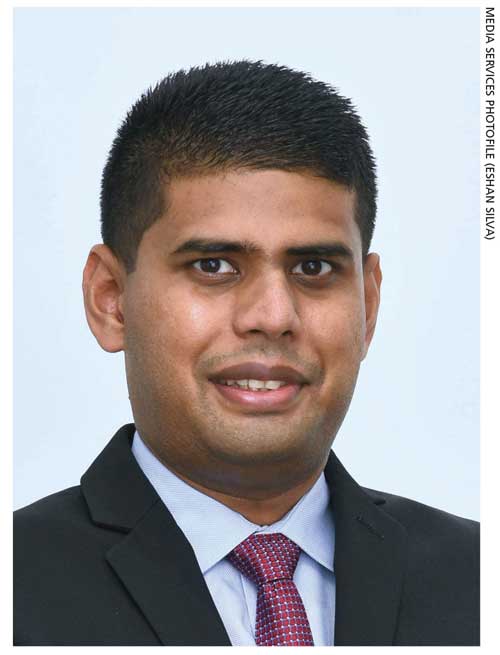REAL ESTATE SECTOR
Compiled by Allaam Ousman
THE LUXURY APARTMENT BOOM
Nadeem Shums sheds light on why apartment living is in vogue in Colombo
Q: In which parts of the country do you see the most growth in terms of real estate? And what are the main factors contributing to this growth, in your assessment?
A: Due to population density, and the concentration of a majority of corporates and businesses in the region, the growth curve will revolve around the Western Province.
We are also seeing a pick up in leisure linked real estate along the southern coastal belt and in the hill country; and this correlates with the growth potential in tourism.
Within the Western Province, most growth will come from Colombo and the fringes of the city where there is good connectivity. Since most people travel to the city for work and to school, localities with better access through highway connectivity will command a premium.
Q: Do you believe that there is adequate demand to justify the boom in the construction of apartments – especially where the luxury segment in the commercial capital is concerned?
A: According to our extensive research into regional economies, and in-depth qualitative and quantitative research, there is adequate demand for competitively priced housing in Sri Lanka.
However, there was a slowdown in demand due to macro factors such as the financial crisis and other challenges that we endured over the past several years. A growing number of people will naturally shift towards apartment living, given the convenience and hassle free factors.
It has become increasingly challenging for people to purchase land and undertake the cumbersome process of building, not forgetting the steep cost of construction and uncertainties that exist.
For these reasons, we believe that there’s great potential for growth in terms of apartments in the country.
When it comes to the luxury segment, there is a limited inventory of apartments that remain unsold. Most developments in the luxury or mid-luxury segment have sold 60-70 percent of their inventory.
What’s important to note is that we are not seeing any major new developments in this segment. And even if they do come up, the pricing will be much higher than the available units due to high construction costs.
As the economy starts to turn around therefore, we will see most available units being absorbed.
Q: Could you shed light on the investment opportunities available for Sri Lankans living overseas? What factors should they consider before investing in this sector?
A: There are many investment opportunities for expats in real estate here in Sri Lanka. However, this largely depends on the purpose of investment.
For those who are frequently visiting Sri Lanka, it’s important to choose a development with convenient access to or in the heart of the city.
Buyers must also consider the track record of the developer, as well as pricing and investment potential. This would be the most convenient option to ensure safety and not have to worry about maintenance of a property while one is overseas.
For those looking at an investment option, it is best to consider the potential rental returns and capital gains. As most expatriates prefer to rent apartments in the heart of the city, this is probably the best place for investing.
Sri Lanka’s real estate pricing is still attractive in comparison to some regional countries and major cities overseas. We are also beginning to see an increase in investments in the leisure linked real estate segment by non-resident Sri Lankans.
Q: What are the main challenges that real estate companies encounter in Sri Lanka – and how can the sector address them going forward?
A: Some of the key challenges faced by real estate developers are the high cost of construction and taxes, which make it challenging to offer competitive prices to the end customer.
Most real estate companies have had to face an exponential increase in costs over the last few years. However, it is important that developers also look at more innovative methods of construction to reduce costs.
Q: And last but not least, could you highlight the latest trends or innovations in the real estate space? And how can we look to leverage them in the local context to improve the sector’s value proposition?
A: Since we’re behind on the growth trajectory in terms of real estate compared to several regional countries, you don’t have to reinvent the wheel.
You can look at some of the advancements in technology and key innovations that have already been introduced to mature real estate markets, and map some of that back to developments in Sri Lanka.
Most innovations and trends in real estate revolve around convenience. In view of this, they have progressed to introducing smart technology in apartments. As such, homeowners have control over their apartments from a mere mobile application.
Developers have also integrated the community aspect to such mobile apps including facility bookings among other options.
In terms of new trends, leisure linked real estate investments are picking up in Sri Lanka as customers seek convenient investment options. Developers are also beginning to offer services such as managing apartments for a specified period with steady returns.





